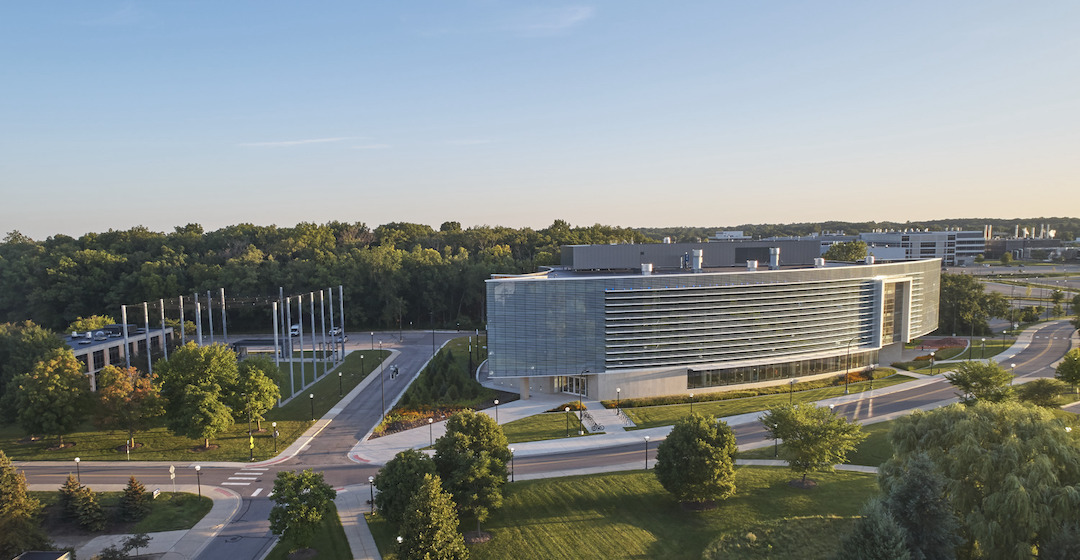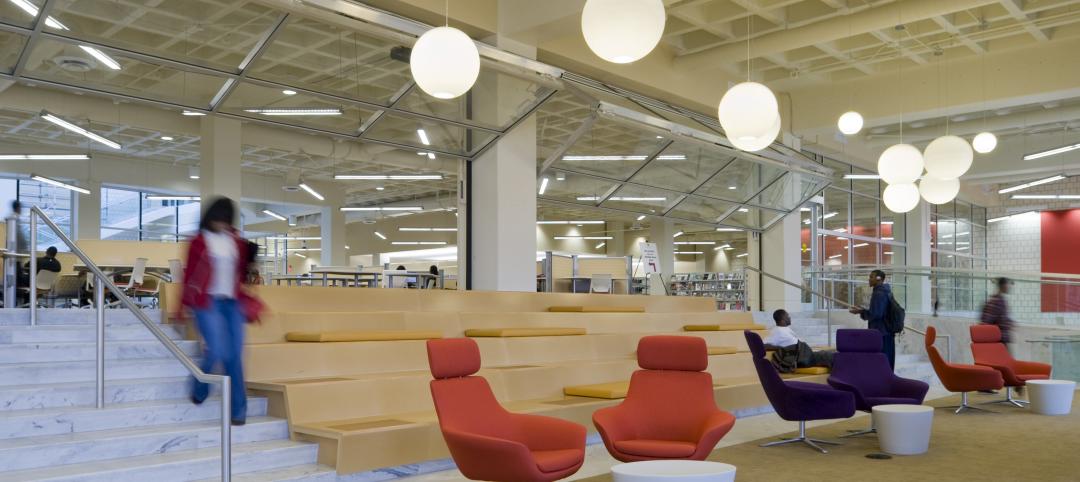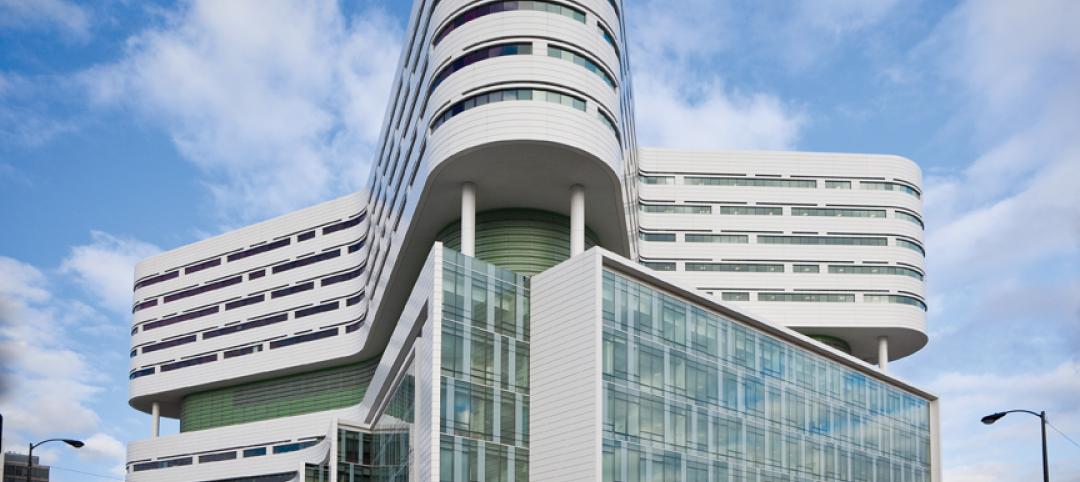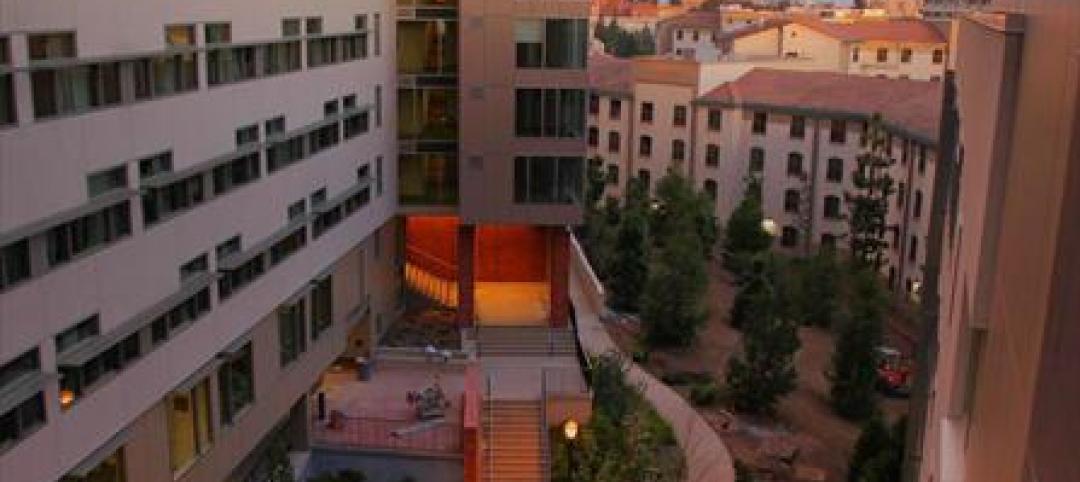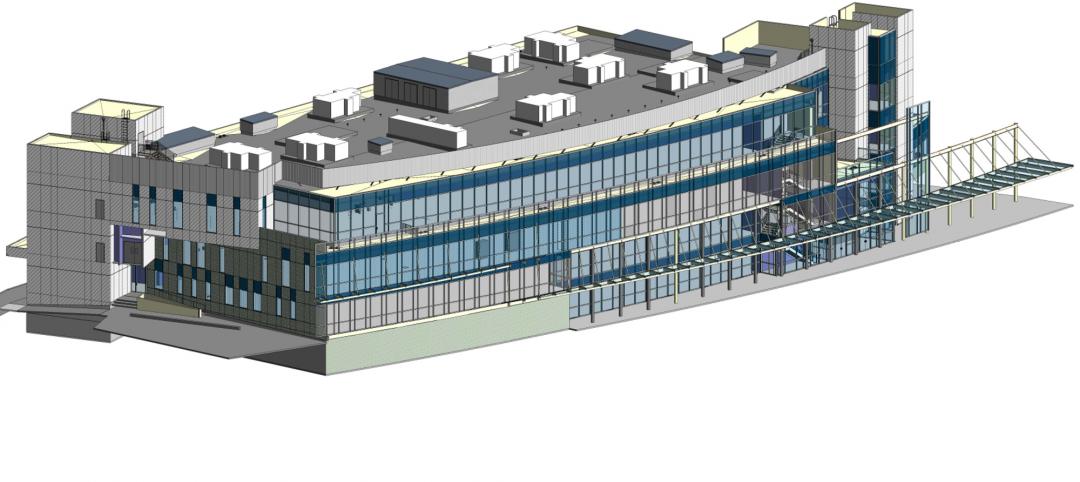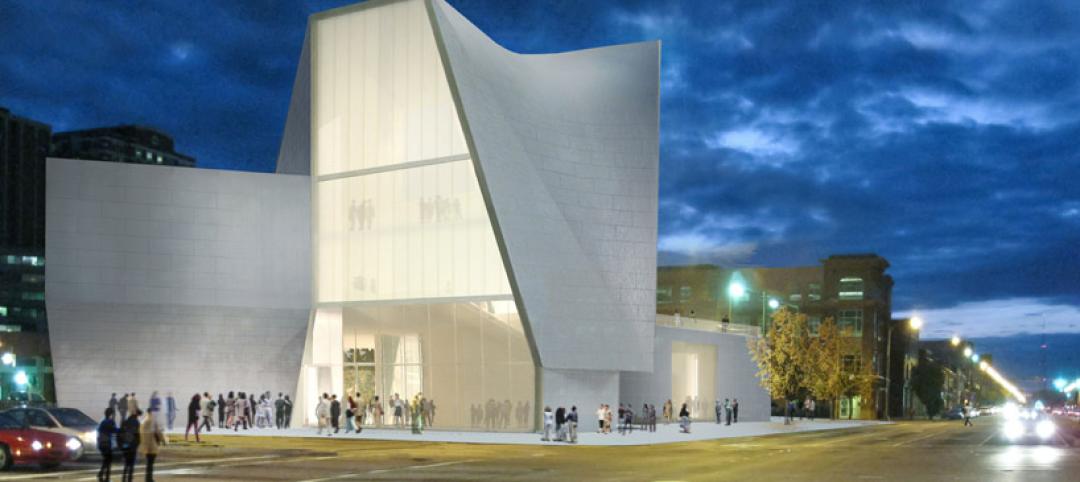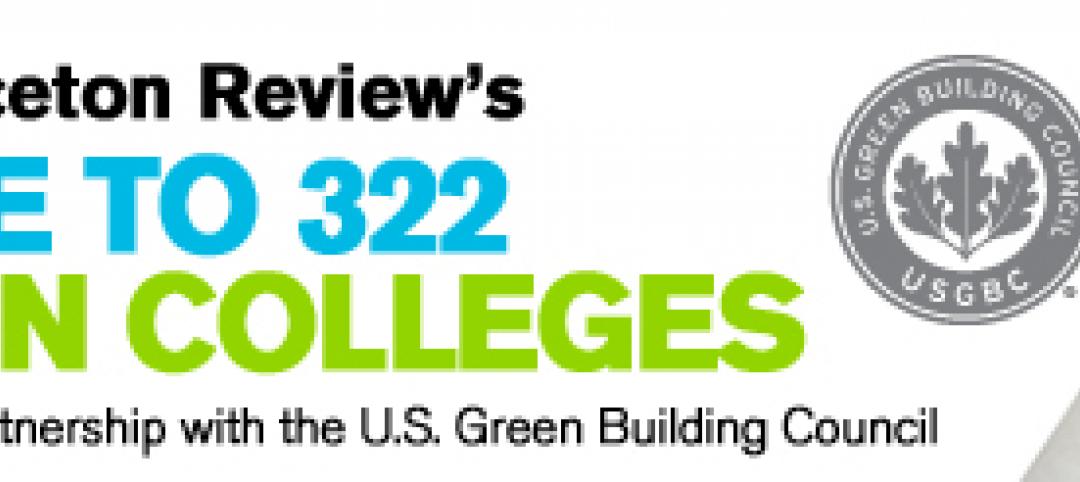The Ford Robotics Building has completed and opened on the University of Michigan (U-M) campus. The $75 million project represents a singular new home for the university’s relationship with Ford and acts as a showcase for robotics research, cross disciplinary collaboration, and innovative industry/education collaboration.
Located on the University of Michigan North Campus, the building anchors the west end of a Michigan Avenue mobility testbed that begins in Detroits Corktown neighborhood and runs through Dearborn to Ann Arbor. The four-story, 134,000-sf project is an interdisciplinary center for mathematics, engineering, and computer programming faculty and researchers. The facility will be home to researchers that were previously spread across 23 separate buildings and is also the first robotics facility to co-locate an industry team (Ford’s mobility research center) with a university’s robotics leadership.
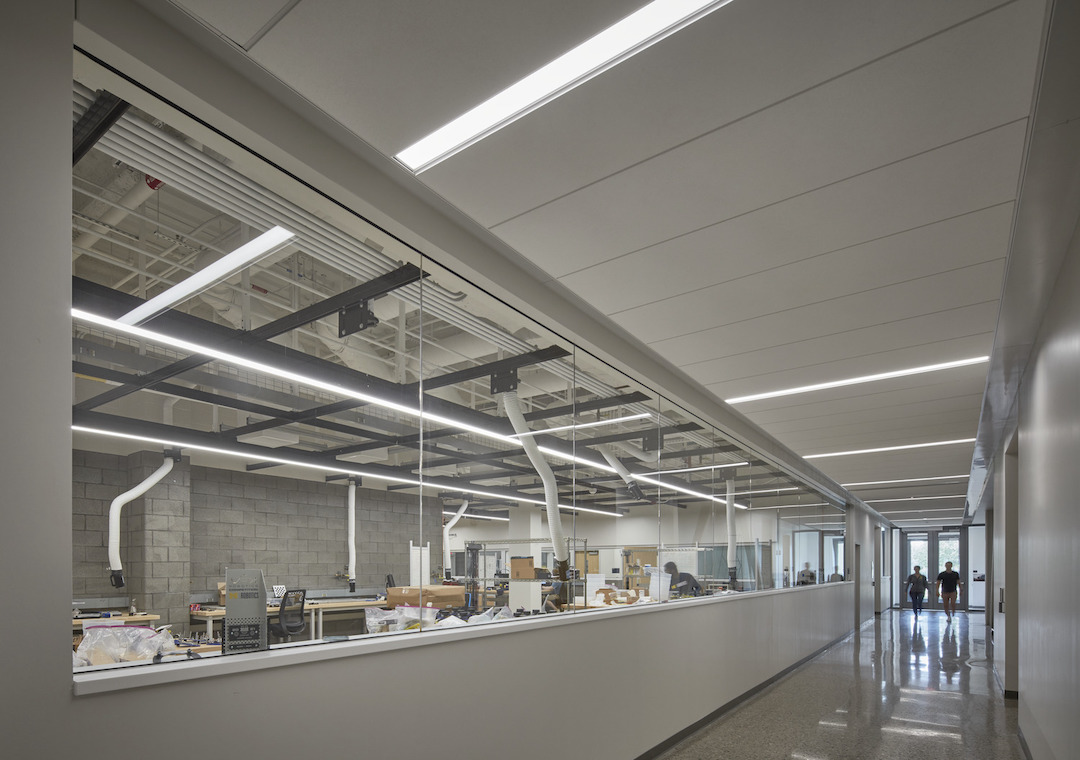
HED, in an effort to reflect a robotics program incorporates both theory and making, designed the building to appear both extroverted and enclosed simultaneously. From the outside, the most striking feature is the glass-clad facade that curves along Hayward Street. Composed of large bands of fritted glass with 30-inch-deep sunshades spaced 42 inches apart, the south-oriented glass wall allows diffused daylight deep into the building interior. The facade also allows visitors to see the activities occurring within.
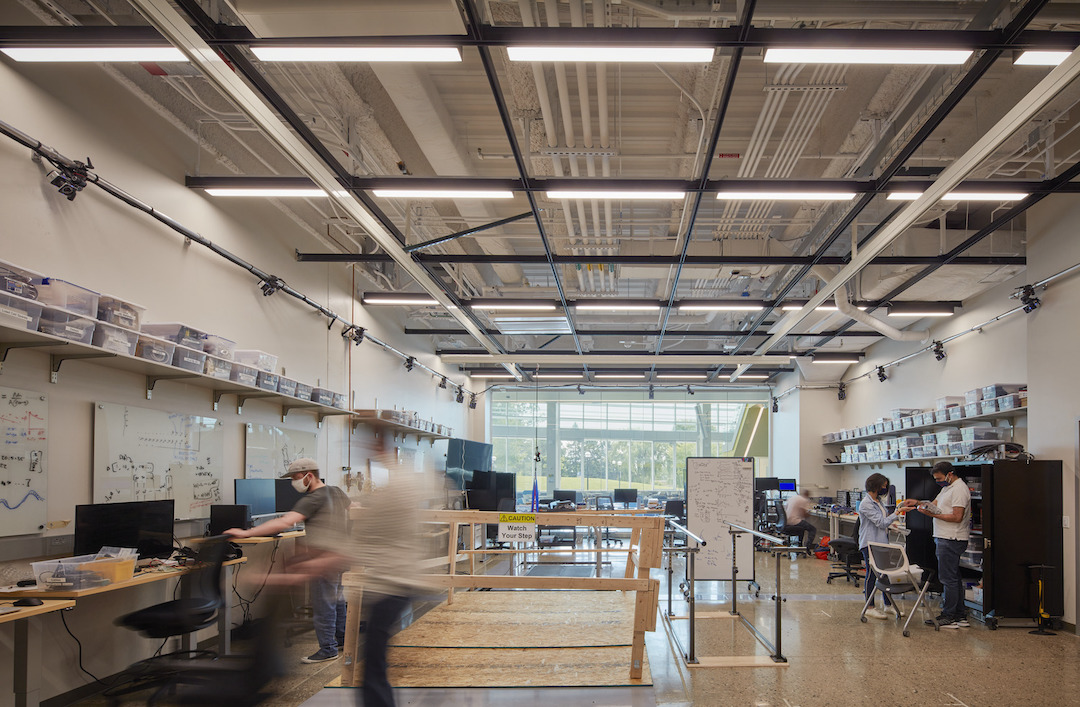
Upon entry, visitors arrive within a four-story atrium defined on one side by the curved smooth-facing glass wall and balconies for the top three floors. The atrium is designed for a wide variety of uses and special events with a cafe, large-scale video screen, and a sophisticated sound system. The atrium is heated through displacement ventilation. Researchers all enter the labs via a shared team collaboration space, ensuring chance encounters, interaction, and collaboration between them.
HED designed the Ford Robotics Building to promote proximity and spontaneous interaction between students, faculty, researchers, and visiting industry professionals. The building includes the new hub of the U-M Robotics Institute on the first three floors and Ford’s robotic and mobility research lab on the fourth floor.
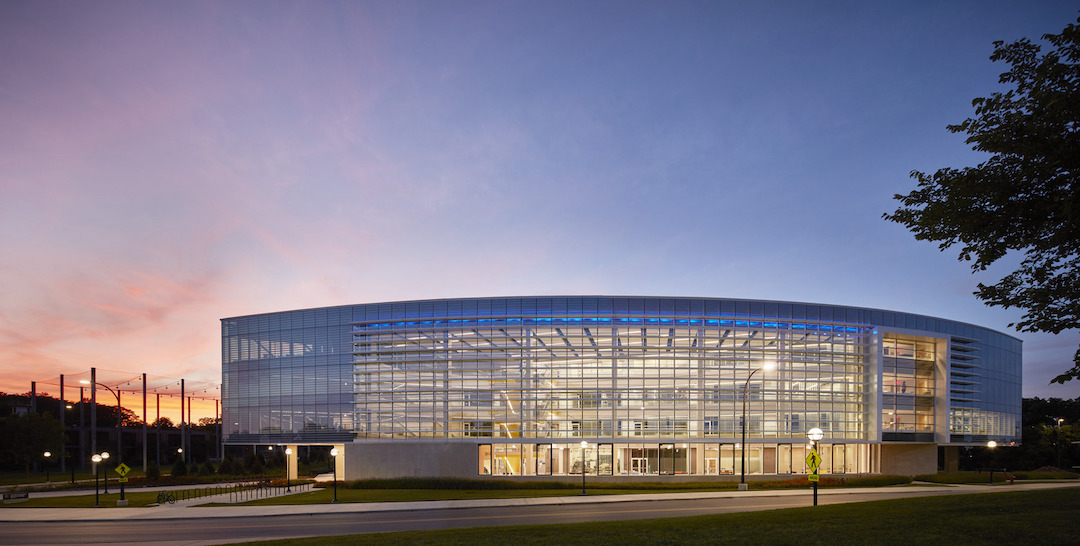
The custom U-M research labs are designed for robots that fly, walk, roll, and augment the human body. Multiple labs are incorporated within the building, including the Ronald D. And Regina C. McNeil Walking Robotics Laboratory for developing and testing legged robots. This specific lab has an in-ground treadmill that can hit 31 mph and a 20% grade, as well as carry obstacles to test walking robots that could aid in disaster relief and lead to better prosthetics and exoskeletons. A rehabilitation lab is designed for advanced prosthetics and robotic controls with a movable “earthquake platform” that can tilt in any direction while force-feedback plates measure ground contact.
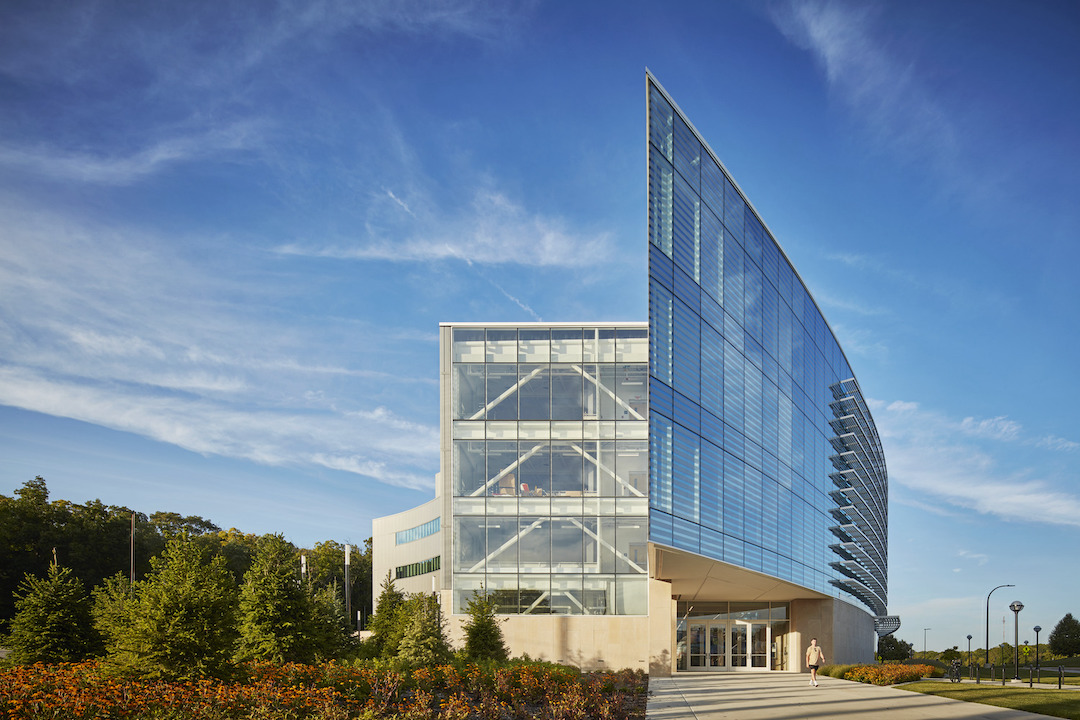
A three-story fly zone allows for the testing of drones and other autonomous aerial vehicles indoors. An outdoor Mars yard was designed with input from planetary scientists at U-M and NASA to enable researchers and student teams to test rover and lander concepts on a landscape that mimics the Martian surface. An AI-designed “robot playground” outdoor obstacle course is designed for testing robots on stairs, rocks, and water surrounded by motion capture cameras. A high-bar garage space for self-driving cars allows for teams to test connected and automated vehicles in urban and suburban environments. Ford roboticists occupy the building’s fourth floor research lab and offices.
The Ford Robotics Building is expected to achieve LEED Gold certification. HED provided architecture, landscape architecture, interior design, and structural, mechanical, and electrical engineering services on the project.
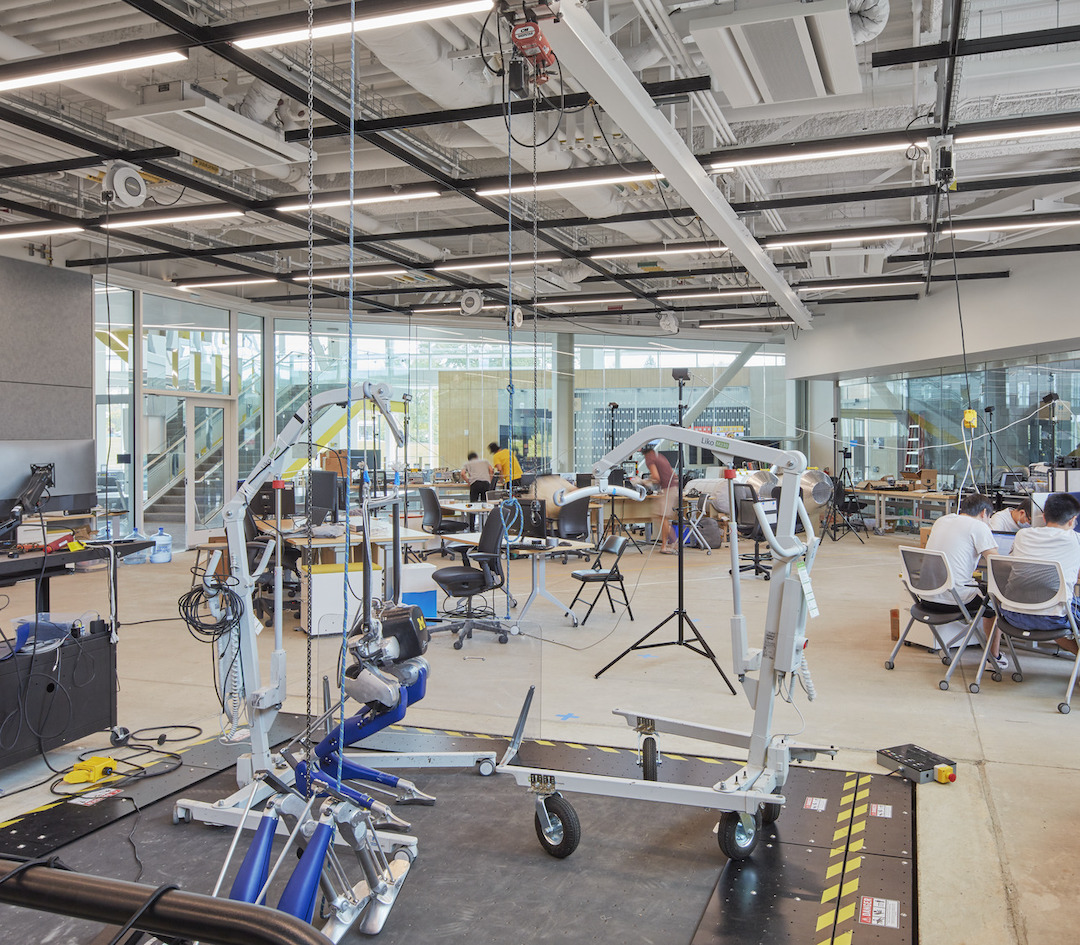
Related Stories
| May 9, 2012
Shepley Bulfinch given IIDA Design award for Woodruff Library?
The design challenges included creating an entry sequence to orient patrons and highlight services; establishing a sense of identity visible from the exterior; and providing a flexible extended-hours access for part of the learning commons.
| May 8, 2012
Morgan/Harbour completes three projects at Columbia Centre
Projects completed on behalf of property owner, White Oak Realty Partners, LLC, Pearlmark Realty Partners, LLC and Angelo Gordon & Co.
| May 7, 2012
2012 BUILDING TEAM AWARDS: TD Ameritrade Park
The new stadium for the College World Series in Omaha combines big-league amenities within a traditional minor league atmosphere.
| May 3, 2012
2012 BUILDING TEAM AWARDS: Rush University Medical Center
This fully integrated Building Team opted for a multi-prime contracting strategy to keep construction going on Chicago’s Rush University Medical Center, despite the economic meltdown.
| May 3, 2012
U of Michigan team looking to create highly efficient building envelope designs
The system combines the use of sensors, novel construction materials, and utility control software in an effort to create technology capable of reducing a building’s carbon footprint.
| May 2, 2012
Building Team completes two additions at UCLA
New student housing buildings are part of UCLA’s Northwest Campus Student Housing In-Fill Project.
| May 1, 2012
Construction is underway on MLK ambulatory care center in L.A.
Featuring a variety of sustainable features, the new facility is designed to achieve LEED Gold Certification.
| Apr 30, 2012
Virginia Commonwealth unveils design for Arts Institution
Institute for Contemporary Art will serve as a catalyst for exhibitions, programs, research and collaboration.
| Apr 25, 2012
J.C. Anderson selected for 50,000-sf build out at Chicago’s DePaul University
The build-out will consist of the construction of new offices, meeting rooms, video rooms and a state-of-the-art multi-tiered Trading Room.
| Apr 17, 2012
Princeton Review releases “Guide to 322 Green Colleges”
The guide profiles 322 institutions of higher education in the U.S. and Canada that demonstrate notable commitments to sustainability in their academic offerings, campus infrastructure, activities and career preparation.


